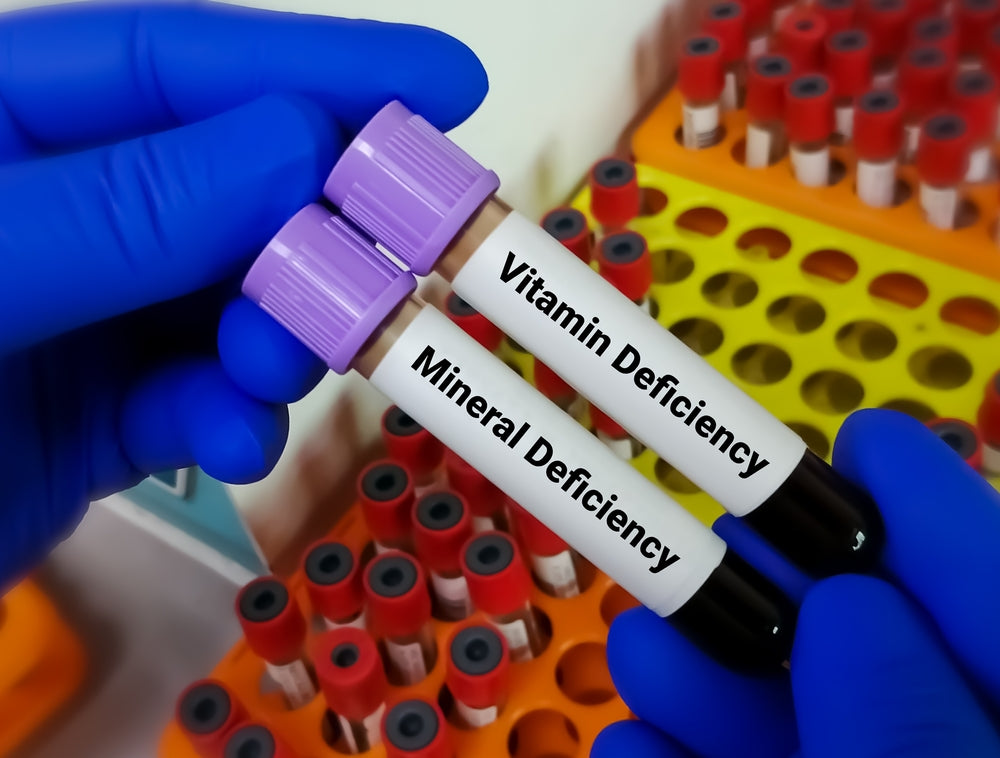The Prevalence of Nutrient Deficiencies in America
According to the Dietary Reference Intakes, a staggering 92% of the U.S. population is affected by at least one mineral or vitamin deficiency. This deficiency cuts across all socio-economic backgrounds and health statuses, highlighting a widespread issue in the country. Even individuals who follow a supposedly "perfect" diet are not immune to deficiencies.
The Impact of Processed Foods on Nutrient Intake
Processed junk food and fast food have become staples in the American diet, contributing to the prevalence of nutrient deficiencies. Nutrient-rich foods are often perceived as time-consuming and costly, making them a luxury rather than a dietary norm. The reliance on these unhealthy food choices further exacerbates the deficiency problem.
The Role of Depleted Soil in Nutrient Content
Studies dating as far back as 1936 have shown that the soil used for farming globally lacks essential micronutrients. This deficiency translates to lower micronutrient levels in the produce grown. In a comparison between current vegetable nutrient content and data from 50 years ago, Canadian researchers found a significant decrease in mineral content. This highlights how soil quality affects the overall nutrient value of produce.
The Alarming Statistics on Deficiencies
Data from the CDC and the U.S. Department of Agriculture (USDA) reveal shocking numbers on nutrient deficiencies in the American population:
- 9 out of 10 Americans are deficient in potassium
- 7 out of 10 are deficient in calcium
- 8 out of 10 are deficient in vitamin E
- 50% of Americans are deficient in vitamin A, vitamin C, and magnesium
- Over 50% of the general population has a vitamin D deficiency, regardless of age
- 90% of Americans of color are vitamin D deficient
- Around 70% of elderly Americans have a vitamin D deficiency
The Importance of Quality Supplements
In the ongoing debate about the necessity of dietary supplements, even the American Medical Association recognizes their significance. They advise all adults to use at least one multivitamin daily. Quality supplements can help restore and maintain optimal micronutrient levels for overall health and well-being.
Understanding Your Nutrient Needs
Everyone's nutrient needs are unique, similar to individual taste in music and clothing. Working with an experienced physician is crucial in getting your nutrient levels tested and monitored over time. Through specialized testing, a physician can identify specific nutrient deficiencies and design a personalized supplement regimen.
Top Supplements for Common Deficiencies
While individual needs vary, some supplements are beneficial for most individuals due to common deficiencies. These include:
- Multivitamins: Extensive studies have revealed that a quality multivitamin is highly valuable in supporting long-term health. Only a small percentage of people achieve adequate essential vitamin intake through diet alone, making multivitamins essential. However, choosing the right multivitamin can be challenging, underlining the importance of vitamin deficiency testing and consultation with a medical expert.
- Vitamin D: Known as the "sunshine vitamin," vitamin D plays a crucial role in various bodily functions. Although sunlight exposure and certain food sources can help increase vitamin D levels, supplementation is often necessary. Adequate vitamin D levels are linked to mood, metabolism, and bone health, among other benefits. Studies recommend daily supplementation of 800 IUs to reduce the risk of diseases associated with poor bone health.
- Vitamin K2: Emerging as a superior micronutrient, vitamin K2 offers multiple health benefits. Beyond its role in blood clotting, it protects against heart disease, promotes strong bones, and contributes to healthy brain function, skin, and growth. While grass-fed meat can provide some vitamin K2, supplementation ensures adequate intake and absorption.
Taking Control of Your Health
Don't leave your health to chance. Discuss specialized nutrient testing for vitamin deficiencies with a physician and embark on a supplement regimen that can improve your health, optimize performance, boost productivity, and enhance your quality of life.
Addressing the widespread vitamin deficiency issue in the United States requires awareness, dietary modifications, and the support of quality supplements. By working with medical professionals and taking proactive steps, individuals can meet their unique nutrient needs and improve their overall health and well-being. Talking to your doctor about using PatchAid Vitamin Patches is a great start!







